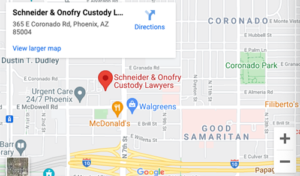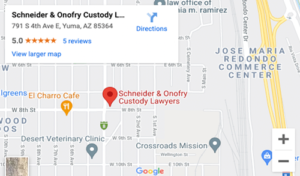What to Expect When You’re Expecting: A Guide to Securing Your Inheritance
Second, you should understand your rights. That is, an inheritance is not guaranteed simply by your being named as an heir or beneficiary. The deceased person’s Personal Representative or Trustee owes a duty to the deceased’s heirs and beneficiaries to distribute the estate in accordance with their last wishes, to the extent the estate is solvent enough to make those distributions. Whether or not you receive an inheritance will likely depend on the size of the estate, considering all assets and liabilities, and how assets are titled. For example, real property (e.g., homes and land) titled as “joint tenants with right of survivorship” passes to the surviving joint tenant outside of probate; you may not be entitled to this property as part of the probate estate.
Third, sometimes legal action will be required to protect your inheritance rights. Specifically, when there is a Will and your inheritance under it is delayed, a probate action may need to be filed with the court to protect your rights to the property in the estate. Depending on the size of the estate, the probate may be a formal, court-reviewed process, or an informal process with limited oversight from the judge. When this begins, the Personal Representative must notify creditors that they are permitted to bring claims against the estate.
After the Personal Representative pays all costs and expenses of administration, funeral expenses, debts, taxes, medical expenses, etc., the remainder of the estate is distributed — if there are any assets remaining. Thus, if sufficient funds remain after all liabilities are paid, you will receive at least some portion of your inheritance. Achieving this result may take one to two years, depending on the complexity and size of the estate.
A Trust will distribute the property in a similar manner without the need for a court action, but the Trustee must also pay the same fees, expenses, and taxes before distributions are made. Thus, you may ultimately inherit only some portion of the amount to which you seem otherwise entitled.
Nonetheless, if you suspect mishandling of the probate or trust estate, you may request an accounting from the Personal Representative or Trustee, which they are required to complete in a reasonable timeframe.
Last, if the Personal Representative or Trustee refuses to provide you a copy of the Will or Trust or refuses to distribute your inheritance, you should seek out the advice of an attorney who practices law in the area of probate, trust and estate litigation. Your attorney will review the estate documents and provide you with a plan of action.
At Schneider & Onofry, our experienced
probate litigation attorneys are ready to help you recover your rightful inheritance. We will explain your rights and assess your likelihood of success and assist you in charting a course to maximize your recovery from the estate.
Please give our office a call today at 602-230-8857 to set up an initial consultation to discuss your rights.


















